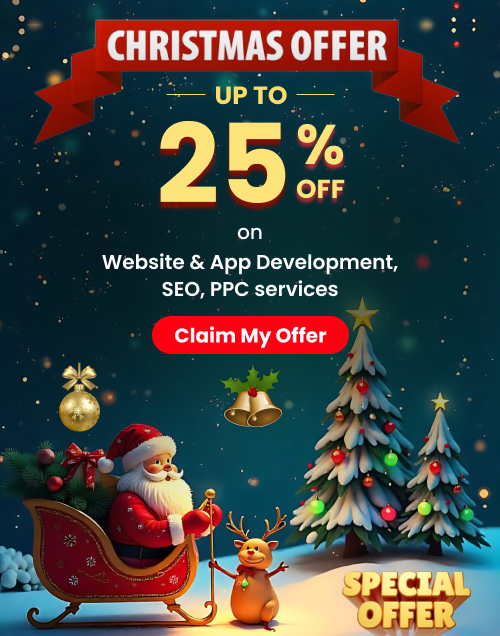Everything You Need to Know About On Demand Mobile App Development
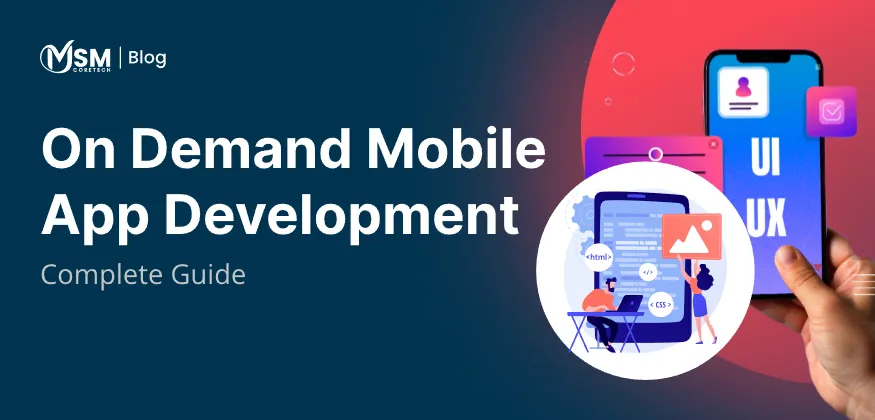
Convenience is the king of the modern era, where instant digital change reigns supreme. The customer adores the services at hand, whether food ordering, ride booking, or house cleaner booking. On-demand mobile apps are the ultimate game players in this area. The apps connect service providers and users in real-time, and hence, the lives of every stakeholder become simpler.
If you own a service business, you may wonder how the on-demand apps can assist you in growing your business. You may even think about developing one, but you are not aware of where to begin. In this post, we will guide you on what you must know regarding on-demand mobile application development for service businesses. We will identify what on-demand mobile applications are, their features, benefits, business applications, development phases, prices, future trends, and how to select the best development company.
What Is an On-Demand Mobile App?
An on-demand mobile app is an application platform that transports individuals to products or services in real time, directly on demand. They are live applications offering instant, convenient access to services such as taxi service, repair service, food ordering, etc. Consider Uber, Swiggy, or TaskRabbit, the top ones — all of them provide customers with access to order services within seconds through their mobile.
On-demand apps assist in matching demand from users with existing service providers located in the close vicinity. The app brings a booking or ordering consumer together with an existing provider willing to perform the activity upon an order or a booking. The app monitors progress in real time, offers an interface of engagement for the users and providers, and even makes secure payments.
Features such as payment gateways, geolocation, push notifications and genuine backend systems allow this seamless experience. No matter if it’s booking a cab, ordering dinner or scheduling a home repair, on-demand apps simplify the customer journey and ensure fast service fulfilment. These apps enhance operational efficiency in business for customer engagement and data-driven decision-making. As the usage of smartphones frequently grows, more service industries are turning to mobile app development services to meet rising customer expectations.
Core Features of On-Demand Mobile Apps
On-demand apps are useful to service businesses as they bring services closer to more individuals and enhance customer satisfaction through easier availability of services. On-demand apps help businesses streamline their operations while ensuring customers' satisfaction through timely and assured services.
Developing a successful on-demand app is all about implementing features that are convenient, user-friendly, and transparent. No matter whether you are hiring an on-demand mobile app company or a hybrid mobile app company, the fundamental features don't change.
-
User Profiles and Registration
The users and providers should be able to create profiles easily. This helps in making experiences personalized as well as tracking user activity.
-
Listings of Services and Search
The customers can search for present services or service providers based on location, rating, price, etc.
-
Real-Time Tracking
The GPS tracking is likely to be the most crucial component. It allows the customers to track the location of the service provider in real-time, which is very much associated with trust and transparency.
-
Booking and Scheduling
The customers need to be allowed to book the services instantly or pre-book.
-
In-App Payments
Fast and secure payment gateways, such as credit/debit cards, mobile wallets, or UPI, need to be integrated so that simple transactions can be enabled.
-
Ratings and Reviews
Having users rate and review services holds them responsible and allows prospective users to make an informed decision.
-
Alerts and Notifications
Push notifications inform the users of order confirmation, arrival of the service provider, payment confirmation, and offers.
-
In-App Call or Chat
One-to-one direct user-service-provider interaction enables immediate problem-solving and service-detail clarification.
-
Admin Dashboard
There needs to be a user, service, payment, and report control panel to facilitate smooth business processes.
Benefits of On-Demand Apps for Service Businesses
On-demand apps have numerous benefits that can revolutionize the manner in which service businesses operate and compete.
-
Bigger Customer Base
Due to mobile platform availability, companies can reach more customers who are interested in using apps for convenience.
-
Enhanced Customer Experience
Because of real-time tracking and real-time communication, customers can better control their order of service, and this contributes to increased satisfaction.
-
Increased Efficiency
Booking, payment, and communication automation save human labor, which the company can use for the quality of the service.
-
Decision Based on Data
On-demand apps generate massive data on consumer behavior and choice, which can be utilized to enhance services and promotions.
-
Scalability and Flexibility
As the demand increases, apps developed using current technology enable companies to expand rapidly and incorporate new features effortlessly.
-
Competitive Advantage
An on-demand service app gives companies a competitive edge over rivals who stick to classical service models.
Industry Use Cases for On-Demand Apps
On-demand apps have evolved the way businesses deliver products and services. Offering convenience and speed to consumers. Their adaptability and scalability make them a valuable asset across several industries.
Here are some of the prominent industries which encourages on Demand apps -
Food and Grocery Delivery
On-demand apps such as Swiggy and Instacart enable customers to order food or groceries to be delivered on the spot.
Healthcare
Telemedicine apps bring patients directly in touch with doctors for consultation and delivery of medicine.
Home Services
Home cleaning, plumbing fixing, electric repair, and other home maintenance services can be booked in advance on demand through apps.
Transportation
Taxi and ride-sharing apps such as Uber enable transport services at an instant.
Beauty and Wellness
Gym trainer, salon, or spa booking is simpler through specialized apps.
Education and Professional Services
Consulting, tutoring, and coaching services are also going on-demand app ways.
Development Process for On-Demand Service Apps
If you are going to develop an on-demand app for your service company, here is a minimum step-by-step process most on-demand mobile app development companies use:
Step #1 Ideation and Market Research
Know your target audience, competitors, and the precise problem your app will alleviate. This will assist in determining the purpose and novelty of your app.
Step #2 Selection of the Right Technology
Select the platform(s) of your apps such as iOS, Android, or both. You may opt for native development for enhanced performance or opt for an outsourcing hybrid mobile application development firm to build a single app that performs on every platform with efficiency.
Step #3 UI/UX Design
Create intuitive, interactive, user-friendly, and easy-to-use interfaces.
Step #3 App Development
Utilize the frontend (user interface) and backend (server, database, APIs) with the chosen technology stack. For instance, an android app development company will employ Kotlin or Java for Android, while iOS apps rely on Swift or Objective-C.
Step #4 Testing
Test rigorously across various devices to identify and fix bugs to allow for smooth functioning and performance.
Step #5 Deployment
Release the app on app stores such as Google Play and Apple App Store.
Step #6 Upkeep and Updates
Publish periodic updates of the app with more features, security fixes, and performance improvements.
Read : Essentials Question Before Building Mobile App
Cost and Time Estimates for On-demand Mobile App Development
Based on many different factors, on-demand app development is projected at different costs and times.
App Complexity
If you need a simple app with minimum features like registration and booking, the cost can be around $10,000 to $30,000. The on-demand applications are basic and quicker to build and test. These apps need limited resources and less technical planning.
If you need an app with medium-complexity features like integrating payment gateways, chats, and location tracking, the cost can range between $30,000 and $150,000. These apps need backend integration, real-time data management and third-party integration.
An app with artificial intelligence and machine learning or custom-made features can be a bit expensive and the budget can rise from $150,000. These applications usually involve costly and complicated development, unique algorithms and data safety concerns.
Platform Choice
iOS and android app development have a wider reach, but they are considered more expensive than single apps when it comes to development. If you want to create an app that works on both platforms, it can cost you twice as much as a local app. However, they offer availability to a larger base of users. While depending on the requirements of the app, a Hybrid or cross-platform development tool might decrease expenses.
Team Location
The cost of developing an app is different across the globe. It can be less costly to work from Asia or Eastern Europe than to work from the United States or Western Europe. If you hire freelance developers or consider outsourcing to remote teams, it might save money. But these things need extra management to ensure the standards of communication and quality are maintained.
Maintenance
Allow 15% to 20% of annual development expenses for maintenance and optimizations. They involve bug fixing, performance improvement, compatibility upgrades and safety updates, which keep the app running seamlessly throughout the time.
Development Duration
Developing a basic app will take 3 to 4 months. But when it comes to developing a complicated application (full of complex features), the time duration might rise up to 6 to 7 months or maybe longer. While relying on the size or resources available, most of the apps with custom-made functionalities, testing phases, and continuous development processes can take a year or more to finish.
Future Trends in On-Demand App Development
Technology improves every day, and so does on-demand app development. Some of the trends one needs to watch out for include:
Artificial Intelligence (AI)
AI-powered functionalities such as intelligent user matching and suppliers, chatbots, and recommendations will intensify the user experience.
Internet of Things (IoT)
Integration with IoT enables intelligent devices to communicate with on-demand apps, further enhancing services such as home automation or upkeep of a vehicle
Augmented Reality (AR) and Virtual Reality (VR)
AR and VR can provide experience-heavy interactions, such as virtual trials for home decor or beauty therapy.
Voice-Enabled Commands
Voice assistants in apps can also enable easier booking of services.
Blockchain for Security
Blockchain can provide additional security and transparency in transactions.
How to Choose the Right On-Demand Mobile App Development Company
Your success lies in the appropriate development partner. Keep the following in mind:
-
Experience and Expertise
Choose a company with proven experience in developing on-demand apps and a phenomenal portfolio in iOS app development and Android app development.
-
Technology Stack
Ensure that they use innovative and scalable technology. A hybrid mobile application development company can suit you if you need cross-platform apps and the development cost is a consideration.
-
Customization and Flexibility
Your business is not like any other, and hence, the company should be capable of customizing the app to your particular needs.
-
Support and Maintenance
After launch, support will be needed in order to handle updates as well as debugging.
-
Client Reviews and Reputation
Read reviews from clients and case studies to know more about the development company and their processes.
-
Communication and Transparency
Open communication and regular progress updates are the key to a successful development process.
Conclusion
On-demand mobile applications have revolutionized service companies by providing instant access, convenience, and an enhanced customer experience. With a new business or an experienced business company, investing in an on-demand application is a shrewd move to stay ahead of the market.
From defining the motive of your app to opting for the right development partner, whether a specialized on-demand mobile app development company or a budget-friendly hybrid mobile app development company, you just need to follow the above steps to build a successful app.
Be aware of future tech trends in mobile app development such as AI, IOT, and AR which help you to make your app attractive and engaging. With the proper planning of your budget, timeline and functionalities in the accurate way, you can deliver a superior quality of app that will attract customers and grow your service-based business.
Looking for a way to transform your service business with an on-demand app? Get started by consulting expert iOS and Android app developers and see your vision materialize!
Related Blogs
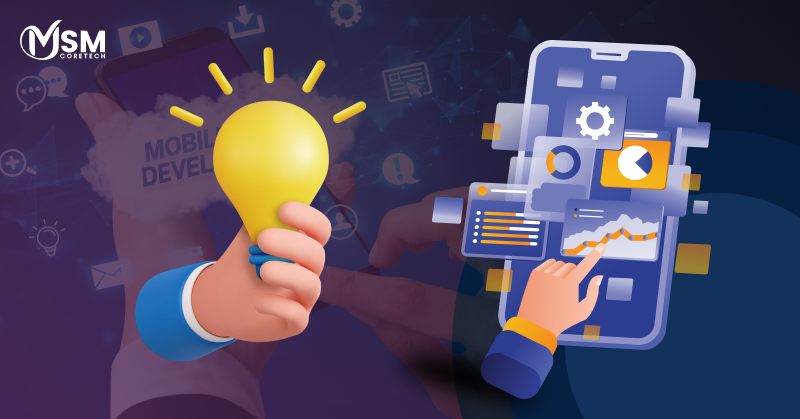
Top 7 App Development Ideas in the Middle East
This blog explores the top 7 application development ideas tailored for the Middle East region, focusing on high-impact sectors such as smart cities, fintech, healthcare, e-commerce, AI-powered solutions, and government-led digital initiatives.
Read More
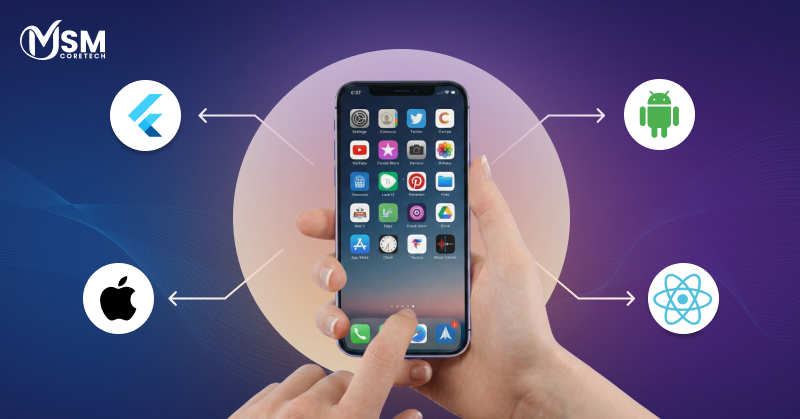
Cross-Platform App Development | Complete Guide
Today the competition is fierce and the usage of different applications for convenience is becoming the mandatory part of our day to day life. Apps also make it easier for companies to connect with their targeted market
Read More
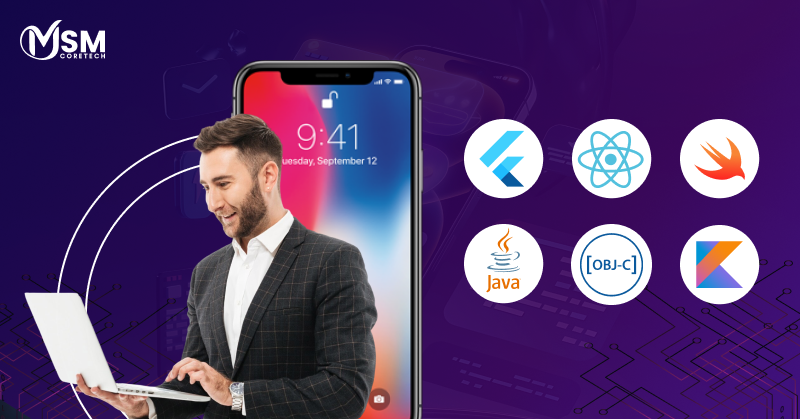
Top Programming Languages for iOS App Development
Discover the best programming languages for iOS app development in 2026, including Swift, Objective-C, Flutter, HTML5, and C#. Learn which is right for your app.
Read More




